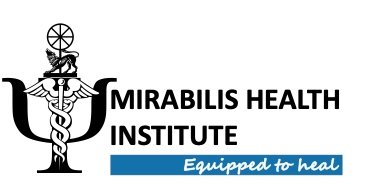The Art of Psychedelic Integration: Strategies for Transforming Insights into Lasting Change
Psychedelic substances, such as lysergic acid diethylamide (LSD), psilocybin, and dimethyltryptamine (DMT), have been used for centuries in religious, therapeutic, and recreational contexts. In recent years, there has been a resurgence of interest in the potential therapeutic applications of psychedelics, particularly for mental health disorders such as anxiety, depression, and post-traumatic stress disorder (PTSD) (Carhart-Harris et al., 2021; Griffiths et al., 2016; Mithoefer et al., 2018).
As research into the potential benefits of psychedelics continues to grow, so does the need for understanding how to integrate the insights and experiences gained from psychedelic use into everyday life. In this article, we will explore the concept of psychedelic integration, discuss the importance of integrating psychedelic experiences, and outline various strategies for transforming insights gained during these experiences into lasting change.
The Concept of Psychedelic Integration
Psychedelic integration refers to the process of incorporating the insights, experiences, and personal growth achieved during a psychedelic journey into one's daily life. It is essential to maximise the potential benefits of psychedelics and minimise any potential risks or adverse effects (Pargament et al., 2020). While the psychedelic experience can be intense and transformative, lasting change requires ongoing reflection, processing, and application of the insights gained (Bogenschutz & Ross, 2018).
Psychedelic integration can be facilitated through a variety of methods, including self-reflection, journaling, art, therapy, and community engagement. The integration process often requires a combination of these methods, tailored to an individual's specific needs and experiences (Watkins, 2021).
The Importance of Integrating Psychedelic Experiences
The integration of psychedelic experiences is crucial for several reasons:
To promote lasting change: The integration process helps ensure that the insights and personal growth achieved during a psychedelic experience translate into sustained improvements in mental health, well-being, and quality of life (Anderson et al., 2020).
To minimise risks: Proper integration helps mitigate the risk of adverse effects or challenging experiences following psychedelic use (Johnson et al., 2008).
To foster personal growth: Integration provides an opportunity for individuals to learn more about themselves, their values, and their place in the world (Watts et al., 2017).
To support community building: Sharing experiences and insights with others can help build connections and foster a supportive environment for personal growth and transformation (Nielson & Guss, 2018).
Strategies for Psychedelic Integration
There are several strategies that individuals can employ to facilitate the integration of psychedelic experiences. These include:
Self-reflection is a crucial aspect of integration. It involves examining one's thoughts, feelings, and experiences during and after a psychedelic journey to understand the insights gained and how they may apply to one's life (Kettner et al., 2021). Self-reflection can be facilitated through various methods, including:
Journaling: Writing down the details of the psychedelic experience, thoughts, emotions, and insights in a journal can help individuals process and integrate the experience into their daily lives. According to the Multidisciplinary Association for Psychedelic Studies (MAPS), "Journaling after a psychedelic experience can help people make sense of what they experienced, clarify what they learned, and help them integrate the insights gained during the experience into their daily lives."
Mindfulness Practices: Mindfulness practices such as meditation, yoga, and breathing exercises can help individuals stay present and connected with their emotions and thoughts. They can also help individuals integrate the insights gained from a psychedelic experience into their daily lives. According to the Third Wave, "Mindfulness practices can help us develop the skills to remain grounded and present in our daily lives, which can support the integration process and help us embody the insights gained during a psychedelic experience."
Therapy: Therapy can provide a safe and supportive space for individuals to process and integrate their psychedelic experiences. A therapist trained in psychedelic integration can help individuals explore and understand the experience, and provide guidance and support for incorporating the insights and lessons learned into daily life.
Group Integration Circles: Connecting with others who have had similar experiences can provide a sense of community and support for individuals going through the psychedelic integration process. Support groups, online forums, and peer networks can provide a safe and non-judgmental space for individuals to share their experiences and receive support and guidance. According to the Third Wave, "Connecting with others who have had similar experiences can provide a sense of community and support, which can help individuals feel less isolated and more supported in the integration process."
Creativity: Engaging in creative activities such as art, music, or dance can help individuals express and process their psychedelic experiences. Creativity can also help individuals connect with their emotions and insights on a deeper level, and provide a sense of meaning and purpose. According to MAPS, "Engaging in creative activities can help individuals express and process their experiences, and provide a sense of meaning and purpose that can support the integration process."

